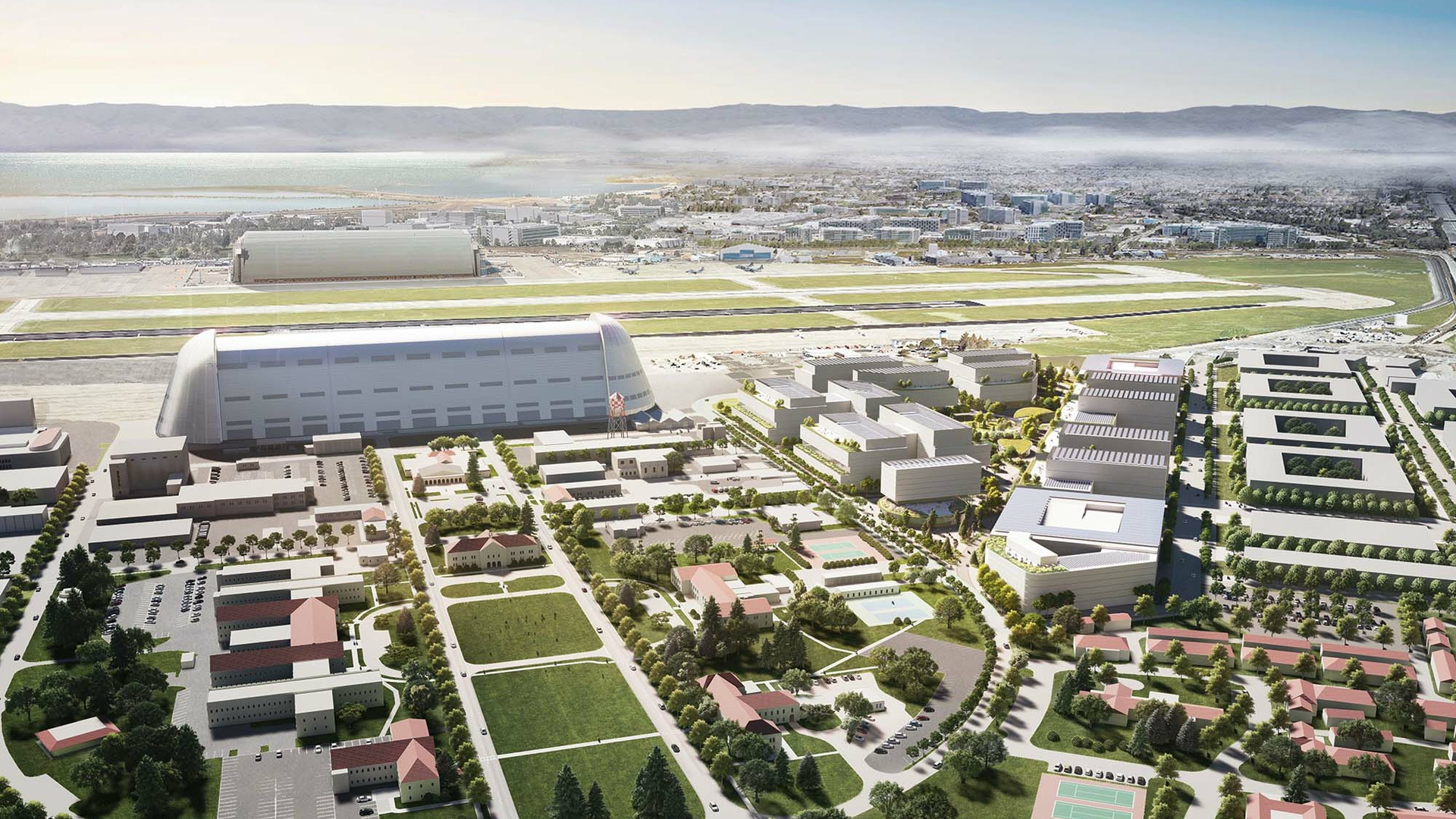NASA Ames, UC Berkeley to build $2 billion space center in Silicon Valley
The new hub has been more than 20 years in the making.

The University of California, Berkeley, and NASA's Ames Research Center just announced plans to build a colossal $2 billion space center in Silicon Valley.
The collaboration between the University of California and NASA Ames, called the Berkeley Space Center, has been in the works for more than two decades. It will be a training ground for the next generation of space professionals, from engineers and explorers to business leaders in the burgeoning private space industry, team members said.
"The NASA mission is twofold: inspiring the next generation of explorers, and dissemination of our technologies and our research for public benefit," NASA Ames Director Eugene Tu said in a UC Berkeley statement. "Collaboration between NASA and university researchers fits within that mission."
Related: Facts about Ames Research Center: R&D lab for NASA
Construction could begin as soon as 2026, pending the successful completion of an environmental review. The University of California intends to occupy close to 10% of the new center's estimated 1.4 million square feet (130,000 square meters) of office space and R&D facilities.
Dan Kingsley of SKS Partners, the commercial real estate developer collaborating on the project, said that "a very broad selection of private industry" is poised to lease the rest of the facilities, according to Space News.
The hope is that the Berkeley Space Center will become an epicenter for advancements in diverse fields, ranging from space robotics and planetary science to automated aviation.
Get the Space.com Newsletter
Breaking space news, the latest updates on rocket launches, skywatching events and more!
"We're hoping to create an ecosystem where Berkeley talent can collaborate with the private sector and co-locate their research and development teams," Alexandre Bayen, a UC Berkeley professor of electrical engineering and computer sciences and associate provost for Moffett Field Program Development, said in the same statement.
"And since we will be close to NASA talent and technology in the heart of Silicon Valley, we hope to leverage that to form future partnerships," Bayen added.
In addition to fostering research, this UC Berkeley-NASA collaboration aims to grow the aerospace workforce more broadly, as well as deepen collaboration between academia and NASA.
"We believe that the research and the capabilities of a major university like Berkeley could be a significant addition to the work being done at Ames," Tu said. "In a more specific way, we would like the potential of having proximity to more students at the undergraduate and graduate level. We would also like the possibility of developing potential partnerships with faculty in the future."
The Berkeley Space Center will also provide opportunities for current industry professionals to improve their skills on new technologies that they might not have been trained on, like machine learning and data science.
"We would like to create industry consortia to support research clusters focused around themes that are key to our objectives, in particular aviation of the future, resiliency in extreme environments, space bioprocess engineering, remote sensing and data science and computing," Bayen said.
Join our Space Forums to keep talking space on the latest missions, night sky and more! And if you have a news tip, correction or comment, let us know at: community@space.com.
John is a science and technology journalist and Space.com contributor. He received his B.A. in English and his M.A. in Computer Science from the City University of New York, Brooklyn College, and has bylines with TechRadar, Live Science, GamesRadar, and other publications. You can find him on Bluesky at @johnloeffler.bsky.social or seeking out dark sky country for spectacular views of the cosmos.









